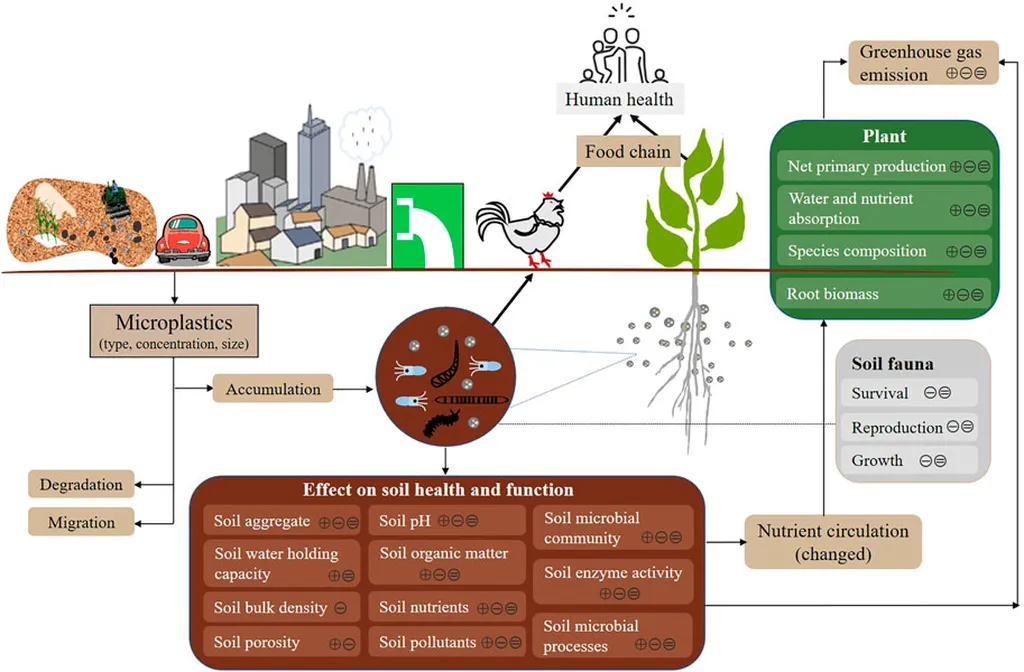In the heart of Pakistan’s agricultural research, a groundbreaking study is shedding light on the invisible threat lurking in our soils—microplastics—and offering a promising solution to combat their detrimental effects on crops. The research, led by Zeeshan Khan from the Department of Agricultural Sciences and Technology at the National University of Sciences and Technology (NUST) in Islamabad, has been published in the journal ‘Plant Stress’.
Microplastics, those tiny, insidious particles that have infiltrated our ecosystems, are posing a significant threat to agricultural productivity. The study reveals that aged microplastics, which have been weathered and modified by environmental exposure, are even more toxic than their raw counterparts. These aged microplastics induce oxidative stress in maize plants, stunting growth and reducing biomass, ultimately impacting crop yields and the agricultural sector’s bottom line.
The research demonstrates that microbial inoculation can significantly enhance plant immunity and mitigate the stress induced by microplastics. “We observed that microbial inoculation, both sole and combined, significantly reduced the oxidative stress induced by microplastics,” Khan explains. “This led to increased antioxidant enzyme activities, up-regulation of stress-responsive genes, and restoration of vital plant metabolic cycles, ultimately improving plant growth and biomass.”
The study employed a combination of Trichoderma longibrachiatum (TD) and Bacillus subtilis (BS), beneficial microbes known for their plant growth-promoting properties. The results were striking. The microbial treatments not only counteracted the negative impacts of microplastics but also enhanced the plants’ overall health and resilience.
The implications for the agricultural sector are profound. As microplastic contamination continues to rise, finding sustainable and effective solutions to protect crops and ensure food security is paramount. This research offers a glimmer of hope, demonstrating that harnessing the power of beneficial microbes could be a game-changer in the fight against microplastic-induced stress in plants.
Moreover, the study’s findings could pave the way for innovative agricultural practices that integrate microbial consortia to combat not only microplastic pollution but also other environmental stressors. “Further exploration is required to explore applications of microbial consortia at field trials and their integration into sustainable agricultural practices,” Khan suggests, hinting at the potential for future developments in this field.
As the world grapples with the escalating issue of microplastic pollution, this research provides a beacon of hope for the agricultural sector. By leveraging the power of beneficial microbes, farmers and agronomists may soon have a powerful tool at their disposal to safeguard crop health and productivity in the face of this growing threat. The study, published in ‘Plant Stress’ and led by Zeeshan Khan from the National University of Sciences and Technology (NUST) in Islamabad, marks a significant step forward in the quest for sustainable and resilient agriculture.

